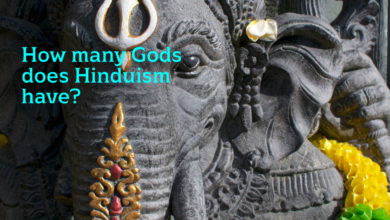
Who are Kiraman Katibin in Islam?
The Kiraman Katibin are a testament to Allah’s boundless mercy. While they record all deeds, they do not instantly inscribe them for judgment. Instead, Allah grants individuals time to repent and seek forgiveness for their wrongdoings, allowing them to cleanse their hearts and turn back to Him.

Introduction
In the rich tapestry of Islamic belief and tradition, there are many elements that capture the imagination and devotion of believers. One such intriguing and spiritually significant concept is that of the Kiraman Katibin, often referred to as the Noble Scribes. These celestial beings hold a special place in Islamic theology and offer profound insights into the recording of human deeds, the mercy of Allah, and the concept of accountability in the Hereafter.
The Kiraman Katibin: Definition and Roles
The term “Kiraman Katibin” can be translated from Arabic as “honorable recorders” or “noble scribes.” According to Islamic tradition, these beings are two angelic figures who are appointed by Allah (God) to record the deeds of every human being. One of these angels is tasked with recording the good deeds, while the other records the bad deeds. Their role is essential in maintaining a meticulous account of every action, word, and thought of an individual throughout their life.
Also check.
- When was the Prophet Muhammad born?
- What did Prophet Muhammad say about Jesus Christ?
- Why Suicide is Haram in Islam
- When does Ramadan end?
- Why is it haram to abuse in Islam?
The Qur’an and Hadith References
While the concept of the Kiraman Katibin is not explicitly mentioned in the Quran, various verses allude to the angels who record deeds. In Surah Al-Infitar (Quran 82:10-12), it is stated:
“But verily, over you (are appointed angels in charge of mankind) to watch you, Kiraman (honorable) Katibin writing down (your deeds), They know all that you do.”
This verse highlights the presence of these noble scribes who meticulously record our actions.
Moreover, numerous hadiths (sayings and actions of the Prophet Muhammad) provide further insights into the roles of the Kiraman Katibin. One hadith narrated by Abdullah bin Amr states that the Prophet Muhammad said, “There are two angels that keep an eye on a person. One writes down his good deeds, and the other writes down his evil deeds.”
The Mercy of Allah
One of the most remarkable aspects of the Kiraman Katibin is their role in reflecting Allah’s boundless mercy. While they record all of our deeds, these angels do not instantly inscribe them in a ledger for judgment. Allah, in His infinite mercy, grants human beings a period of time during which they can repent and seek forgiveness for their wrongdoings.
This concept of divine mercy is beautifully captured in a hadith where the Prophet Muhammad said, “When a servant commits a sin, an angel puts a black spot on his heart. If he abandons the sin, seeks forgiveness, and repents, his heart will be cleansed. But if he repeats the sin, the black spot increases until it overcomes his heart.“
The Role of Accountability
The belief in the Kiraman Katibin underscores the Islamic principle of accountability in the Hereafter. On the Day of Judgment, these noble scribes will present the complete records of an individual’s deeds to Allah. The Quran mentions this momentous event:
“So whoever does an atom’s weight of good will see it, and whoever does an atom’s weight of evil will see it.” (Quran 99:7-8)
The meticulous record-keeping of the Kiraman Katibin ensures that every person’s deeds, no matter how small or hidden, will be brought to light on that Day.
Conclusion
The concept of the Kiraman Katibin in Islam offers a profound understanding of divine mercy, accountability, and the intricate workings of the unseen world. These noble scribes, entrusted with recording our deeds, serve as a reminder of our responsibility to lead a righteous life and seek Allah’s forgiveness for our shortcomings.
Understanding the roles of the Kiraman Katibin encourages believers to be mindful of their actions and intentions, striving to accumulate good deeds and seeking repentance when they err. Ultimately, it is a reminder that our actions in this world have lasting consequences, and the records kept by these celestial beings will bear witness to our choices on the Day of Judgment.
FAQs
Who are the Kiraman Katibin in Islam?
The Kiraman Katibin, often referred to as the “Noble Scribes,” are angelic beings in Islamic belief. They are appointed by Allah (God) to record the deeds of every human being throughout their life. One angel records good deeds, while the other records bad deeds.
Where is the concept of Kiraman Katibin mentioned in Islamic sources?
While the term “Kiraman Katibin” is not explicitly mentioned in the Quran, various Quranic verses allude to the presence of angels who record human deeds. For example, Surah Al-Infitar (Quran 82:10-12) references angels “writing down” our deeds. Additionally, the concept is elaborated upon in various Hadiths, the sayings and actions of the Prophet Muhammad.
How do the Kiraman Katibin reflect Allah’s mercy in Islam?
The Kiraman Katibin are a testament to Allah’s boundless mercy. While they record all deeds, they do not instantly inscribe them for judgment. Instead, Allah grants individuals time to repent and seek forgiveness for their wrongdoings, allowing them to cleanse their hearts and turn back to Him.
What is the significance of the Kiraman Katibin in terms of accountability in Islam?
The Kiraman Katibin play a crucial role in the concept of accountability in Islam. On the Day of Judgment, they will present the complete records of an individual’s deeds to Allah. This emphasizes that every action, no matter how small or hidden, will be brought to light, reinforcing the idea of ultimate accountability.
Can a person’s good deeds outweigh their bad deeds recorded by the Kiraman Katibin?
In Islamic belief, the weight of one’s good deeds and bad deeds is a determining factor in the Hereafter. If a person’s good deeds outweigh their bad deeds, they may attain Allah’s mercy and enter paradise. However, only Allah can make the final judgment based on His wisdom and justice.
How can one seek forgiveness for the bad deeds recorded by the Kiraman Katibin?
Seeking forgiveness in Islam involves sincere repentance, regret for one’s actions, and a commitment to change. Muslims often turn to Allah through acts of worship, supplication, and charitable deeds. It’s believed that Allah, in His mercy, forgives those who genuinely seek His pardon.
Are the Kiraman Katibin mentioned in other religious traditions?
The concept of celestial record-keepers is not unique to Islam. Similar notions of angels recording deeds exist in other monotheistic religions, although the specifics may differ. In Christianity, for example, guardian angels are believed to watch over individuals.
How can one ensure their deeds recorded by the Kiraman Katibin are righteous?
To ensure righteous deeds, Muslims are encouraged to follow the guidance of Islam, perform acts of worship, treat others with kindness and fairness, and avoid sinful behavior. Regular self-reflection and seeking Allah’s guidance through prayer and supplication are also essential.




